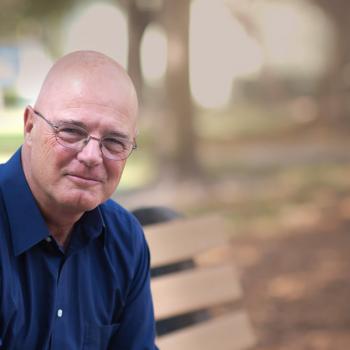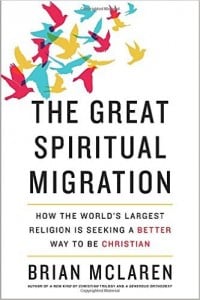A lot of people have been talking and writing about the departure of Millennials from the ranks of the churched. I think people would be surprised to know how many pastors and priests have either left already or are thinking about leaving.
I meet them in my travels constantly. Take Clarke, for example. Here’s what she wrote to me recently:
The longer I work in the church the more I wonder if the church has become impotent in its ability to have impact in our world. I often feel the church caters to the expectations and needs of insiders who have lost sight of our call to be radical change agents charged with advocating for and with people who have been pushed to the margins and to fight against the walls that keep them there. It seems all too often, the church has become a comfortable place where we learn about God but not the place where we expect to actually wrestle with and be transformed by God.
A sense of mission often draws people to ministry, a desire to be part of God’s healing and transforming mission. But once they get inside, they see behind the curtain and discover a kind of boutique shop keeping a certain finicky clientele satisfied with a steady stream of (as Missional Church aptly put it) “spiritual goods and services.”
The newly ordained often experience a keen sense of disappointment, even disillusionment, as they realize what Clarke now sees, that many of our churches have more to do with subcultural identity preservation than they do with mission:
In one way, churches are filled with homogeneous people often based on heritage… the Swedish Lutheran Church, or Norwegian Lutheran Church, or the African American Baptist Church etc. We are homogeneous….
Also disheartening, newly minted clergy see the church’s concern about gnats and cluelessness about camels (to paraphrase Jesus’ words in Matthew 23:24).
We are homogeneous., right up to the point that we don’t agree about something. If that something pertains to religion then we will battle it out for generations, no matter how inconsequential. If it falls into any other category we are told it is critical that we put it aside as it is not a church matter. Churches are religious institutions and those “non-religious” issues deal with the political, ecological, racial, sexual etc.
What especially grieves Clarke and many like her is the prime directive to walk on eggshells regarding issues deemed political.
As a leader in the church I feel I am expected to be silent and non-opinionated on these issues. Ironic. When I look to the life of Jesus religion seems to have been low on his list of cares other than to challenge the religious elite of the day. Jesus cared about people who were on the margins, He cared about the list of things that I feel I cannot talk about as a leader of the church. So how do I passionately follow Jesus and ignore the very work that defined his ministry?
Clarke, and many like her, are being drained of passion by the relentless focus on religious trivia and the relentless avoidance of issues that matter morally – and in terms of human survival.
As I sit in our weekly staff meetings there are so few things that get talked about that I can muster up passion to engage or care about. I’m not only talking about things like whether we use bread or wafers, Easter worship service times, and carpet color, but even worship itself and the doctrine that binds us often seem simply irrelevant to the issues of our world. I wonder if I’m burned out but I don’t think I am because there are things that do invoke deep passion in me. When I watch the news, I feel passion. When I hang out with kids who are struggling with great questions for which I have no great answers, I feel passion. When I see someone searching to find their place in the world, I feel deep passion, when I see people trying to understand one another despite their differences, I feel deep passion. When I see young people starting a recycling campaign or a stop bullying campaign, I feel deep passion. I went to school to become a leader in the church because I somehow believed the church would be the platform from which I could work alongside a community of people to engage these areas of passion. I think I was naive.
Clarke and her colleagues long to grapple with big challenges, even though doing so is “dangerous” in that it might offend a major donor:
Worship is safe, service projects are safe, Bible study is safe, talking about bulletin size is safe. I don’t think passion is ever found in the safe and I don’t think important change comes from there either and so we have become passionless and barren.
Clarke and disillusioned clergy like her aren’t complainers or quitters. They’ve already hung in there for many years. But make no mistake: eventually they will shake the dust off their feet and will leave the church … unless more and more of us say, “We’re sick of the status quo too. We’re finished with walking on eggshells. We are ready for change. You lead, and we’ll lead with you.”
But moving forward will take more than raising our voices. It will also require raising some money. We need church members to approach forward-leaning leaders and say, “If some donors get mad and stop giving, we’ll make up the difference. What good does it do to save the church budget and lose our souls?”
Gifted pastors like Clarke have seen behind the curtain. And here’s what they see:
As a church I believe we have an opportunity to be inventive and creative, curious, questioning and impactful…. But we have to stop being afraid…insecure… and we have to stop being religious over being followers of Christ.
If you’re a leader like Clarke, or if you’re part of a congregation that is tired of walking on eggshells, please don’t give up. You are needed now more than ever.
But just as the answer isn’t giving up, neither is it simply “hanging in there,” hoping things will get better. No. it’s time to break some eggshells and it’s time to upset the status quo – gently, yes, lovingly, yes, but boldly, creatively, and substantially, too.
(If you’re interested in learning about what I’m up to in this regard, please check out Convergence Leadership Project.)













